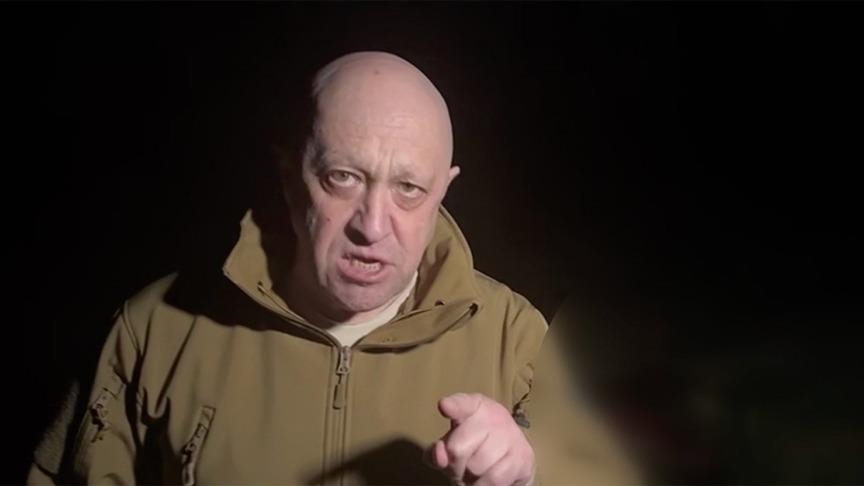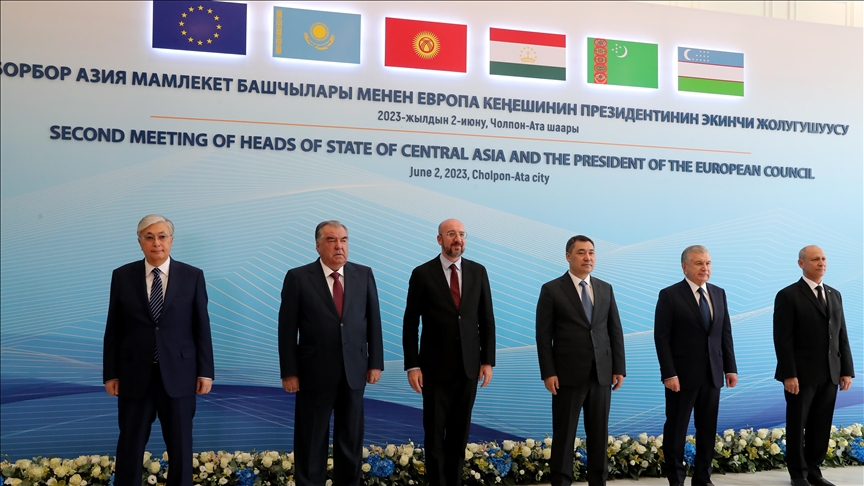Paramilitary group that made a name for itself for its role in crisis zones
ANKARA
Accusing Russian forces of attacking its fighters and then crossing from Ukraine into the Russian city of Rostov-on-Don, the Wagner paramilitary group has come to the fore with its role in crisis regions from Africa to the Middle East.
Officially called the Wagner PMC (private military company), the Wagner Group was founded in 2014 to support Russia-backed separatists in the Donbas region and is owned by wealthy businessman Yevgeny Prigozhin, nicknamed “Putin’s chef” due to the supply of food to the Kremlin by his restaurants, and former Russian intelligence officer Dmitry Utkin.
Wagner began operating in Africa and the Middle East when it was founded in 2014 and thought to have around 5,000 fighters, but has grown significantly since then.
The paramilitary group made a name for itself internationally through its involvement in Russia’s annexation of Crimea, a move widely viewed as illegal by the international community, including Türkiye and the UN General Assembly.
The group has also been involved in the ongoing Russia-Ukraine war that began in February 2022 after Wagner forces were deployed in Ukraine on March 28, 2022. The group has 50,000 active fighters in Ukraine, according to British intelligence.
According to the US National Security Council, while about 80% of its troops in Ukraine were withdrawn from prisons, it was stated that the Wagner Group was effective in Russia’s alleged capture of the Bakhmut city in eastern Ukraine’s Donetsk region.
The Wagner group has also sent fighters outside Ukraine to various conflicts in the Middle East and Africa, including the civil war in Syria. The group is noted to be operating in Mali, Madagascar, Mozambique, Sudan, Burkina Faso, Libya, and the Central African Republic.
The US formally designated the Wagner Group as a “transnational criminal organization” in January.
Kremlin-Wagner tensions
Prigozhin has repeatedly accused Russian Defense Minister Sergey Shoygu and Valery Gerasimov, the commander of Russian forces in Ukraine, of “incompetence” and deliberately undersupplying Wagner units fighting in Ukraine.
On June 10, Shoygu signed a decree under which all units not under the Defense Ministry’s orders must sign military service contracts with it by the end of the month. This move was seen as an attempt by the government to gain more control over Wagner.
Tensions between the Kremlin and Wagner grew further when Prigozhin claimed on Friday that Russian forces had attacked a camp of the paramilitary group to the rear of Russian lines in Ukraine.
Prigozhin accused the Russian Defense Ministry for the alleged attack and personally swore to “punish” the perpetrators and Shoygu himself.
The Russian Defense Ministry denied the claim, calling it an “informational provocation.” Russia’s Federal Security Service later called on Wagner fighters to arrest Prigozhin, and described Prigozhin’s actions as a “stab in the back.”
* Writing by Burc Eruygur in Istanbul
Anadolu Agency website contains only a portion of the news stories offered to subscribers in the AA News Broadcasting System (HAS), and in summarized form. Please contact us for subscription options.



